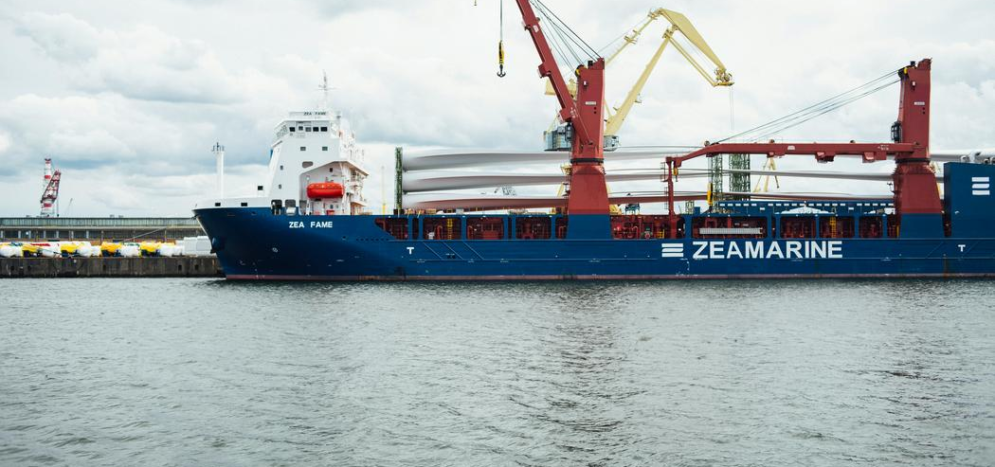Liability vs. Cargo Insurance: What's the Best Choice for You?
In the trucking industry, effective risk management is crucial for success. Owner-operators often face the challenge of selecting the right insurance to safeguard their businesses and goods. Two primary types of coverage are liability and cargo insurance. By understanding the distinctions between these options, you can make informed decisions that align with your operational needs and protect your livelihood.
Understanding Liability Insurance
What is Liability Insurance?
Liability insurance serves as a safeguard against claims arising from injuries and damage caused to others or their property. This type of coverage is particularly important in the trucking sector, where accidents can result in substantial financial liabilities if you are deemed responsible. It typically covers bodily injury, property damage, and legal costs related to incidents involving your vehicle.
Importance of Liability Insurance
Liability insurance is vital for several reasons:
- Legal Requirement: In many U.S. states, maintaining a minimum level of liability insurance is mandated for legal operation.
- Financial Security: This insurance protects your assets by covering legal expenses, medical costs, and compensation for which you may be found liable.
- Professional Credibility: Having sufficient liability coverage can enhance your business reputation, as clients and partners prefer to contract with insured operators.
Types of Liability Insurance
- Bodily Injury Liability: Covers medical costs incurred by others following an accident caused by your truck.
- Property Damage Liability: Addresses damages inflicted on someone else's property, such as vehicles or infrastructure.
- General Liability: Expands coverage beyond accidents, including claims related to your business’s operations, like premises liability.
Understanding Cargo Insurance
What is Cargo Insurance?
Cargo insurance is designed to protect owner-operators from losses or damages to the goods being transported in their trucks. This coverage is essential for safeguarding financial investments in shipped freight and maintaining the trust of clients who depend on secure deliveries.
Importance of Cargo Insurance
Cargo insurance offers significant advantages to truckers:
- Investment Protection: As an owner-operator, you often transport valuable goods; cargo insurance provides financial coverage in the event of loss, theft, or damage during transit.
- Building Client Confidence: Clients appreciate knowing their goods are insured, which can strengthen long-term business partnerships.
- Mitigating Financial Risks: Despite robust operational protocols, incidents may occur. Cargo insurance helps buffer financial setbacks, ensuring business continuity.
Types of Cargo Insurance
- All Risk Coverage: A comprehensive policy that covers most causes of loss except those specified as exclusions.
- Named Perils Coverage: This option covers only the risks explicitly listed, such as fire or collision, making it a limited but often more affordable choice.
- Contingent Cargo Insurance: This insurance acts as additional coverage when primary cargo insurance is inadequate, filling gaps for enhanced protection.
Liability vs. Cargo Insurance: Key Differences
- Scope of Coverage: Liability insurance focuses on bodily injury and property damage to third parties, whereas cargo insurance is concerned with the loss or damage of freight in transit.
- Legal Mandates: Liability insurance is frequently a legal requirement, while cargo insurance is generally optional but highly advisable for financial protection.
- Business Impact: Liability insurance protects against external claims, while cargo insurance shields your assets and income associated with transported goods.
Which Insurance is Right for You?
Choosing the correct insurance for your trucking operation depends on multiple factors:
Business Size and Operation Type
If you manage a large fleet or handle high-value cargo, both liability and cargo insurance are critical for thorough protection. Smaller businesses may prioritize liability insurance first but should consider cargo coverage as well.
Nature of Cargo
Assess the types of goods you transport regularly. For high-value items like electronics or pharmaceuticals, cargo insurance is often necessary to prevent significant losses.
Risk Tolerance
Consider your comfort with absorbing potential losses. If the prospect of losing valuable cargo is troubling or would heavily impact your business, investing in cargo insurance is prudent.
Conclusion
Grasping the distinctions between liability and cargo insurance is essential for the comprehensive protection of your trucking business. While liability insurance is often prioritized for legal compliance and financial security, cargo insurance is invaluable for those transporting high-value goods. By evaluating your specific operational needs, you can make informed decisions that ensure both your business and assets remain secure.
FAQs on Liability vs. Cargo Insurance
1. What is the key distinction between liability and cargo insurance?
Liability insurance addresses bodily injury and property damage to third parties, while cargo insurance protects the goods transported in your vehicle.
2. Is liability insurance mandatory for truck operators?
Yes, a minimum level of liability insurance is required in most states for legal vehicle operation.
3. Is cargo insurance necessary for every load I transport?
While not a legal requirement, cargo insurance is strongly recommended to protect against financial loss resulting from damage or loss of goods.
4. How much liability insurance should I obtain?
The required amount of liability insurance depends on your business size, the number of vehicles, and state mandates. It is advisable to consult an insurance professional for appropriate levels of coverage.
5. Can I obtain both liability and cargo insurance from the same carrier?
Many insurance providers offer bundled options for liability and cargo insurance, which can streamline your coverage process and potentially reduce costs. It’s best to shop around for competitive options.
For more detailed information, you can visit the American Trucking Associations, a reliable source in the trucking industry.

